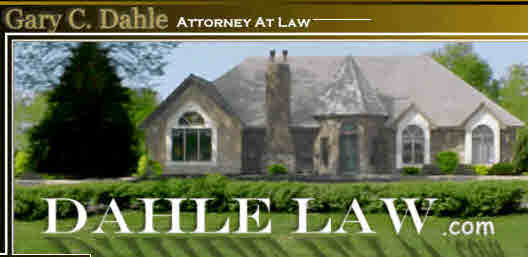Augsburg Seminary and the Minnesota Attorney General – 1896
After failing in all previous attempts to gain control of the Augsburg Seminary corporation by nonjudicial methods, in July of 1896 the Competing Trustees of Augsburg Seminary elected by the United Church attempted to have the Minnesota Attorney General assist them in obtaining a writ of quo warranto against Oftedal’s Trustees, which would declare that the Competing Trustees, and not the Oftedal Trustees, were properly in control of the Augsburg Seminary corporation.[1]
The Competing Trustees filed a complaint with the office of the Minnesota Attorney General requesting that the State of Minnesota commence an action against the Oftedal Trustees seeking to:
(1) exclude the Oftedal Trustees from the Board of Trustees of Augsburg Seminary;
(2) require the Oftedal Trustees to show cause why they should not turn over the property of Augsburg Seminary to the Competing Trustees; and
(3) fine the Oftedal Trustees for usurping such offices from the Competing Trustees—who considered themselves to be the legitimate Board of Trustees for Augsburg Seminary.[2]
The Minnesota Attorney General noted that the Competing Trustees claimed to be the trustees of Augsburg Seminary by reason of their election by the members of the United Church in June of 1896, but refused their demands—for the following reasons:
I am unable to accord with the view that complainants have any right by reason of the said election, nor am I satisfied that the facts would justify the attorney-general in proceeding upon his own relator.
Furthermore, I am convinced that applicants enjoy the right of another adequate remedy, and that reason alone might be relied upon by me in declining to permit the use of the name of the State.[3]
The Minnesota Attorney General identified the two primary issues which were presented for his consideration:
(1) What is the present legal status of Augsburg Seminary with respect to the United Church?
(2) Does the controversy either require, or justify, the intervention of the State?[4]
The Minnesota Attorney General reviewed the relationship between the Conference and Augsburg Seminary, and determined that the Augsburg Seminary corporation had existed independently of the Conference prior to the formation of United Church, and therefore the United Church—as the successor to the Conference—had no voice in the election of trustees for the Augsburg Seminary corporation.[5]
The Minnesota Attorney General identified that the Conference had mistakenly assumed that it had legal control over the Augsburg Seminary corporation, by reason of the fact that until 1890, the annual meetings of the Conference had elected trustees for the Augsburg Seminary corporation:
The election of the trustees for Augsburg Seminary up to 1890 by the Conference was a misconception of the legal character of the Augsburg corporation.
The Augsburg corporation was an independent entity apart from the Conference.[6]
The Minnesota Attorney General noted that the Minnesota Legislature had in 1877 attempted to confirm—pursuant to the adoption of a curative act—that legal control over the trustees of the Augsburg Seminary corporation was held by the Conference, but nevertheless declared that such legislation was partially unconstitutional:
The curative act of 1877, whereby the Conference (or, after 1890, the United Church) was to be permitted to elect trustees for the seminary, was a manifest violation of the constitution.
As a Corporation . . . the Seminary stands upon its own feet and contains within itself the requisite legal machinery for effectuating the purposes of its being.
In short, the United Church has no voice whatever in the election of trustees.[7]
With all deference to the views of counsel, I’m unable to perceive how any other view is at all tenable under the facts with which I have been presented.[8]
However, the Minnesota Attorney General noted that the Augsburg Seminary corporation had become an agent of the Conference for the administration of trust funds raised by the Conference for the operation of Augsburg Seminary.[9]
Nevertheless, on December 4, 1896, the Minnesota Attorney General declared that the Conference was not one and the same with the Augsburg Seminary corporation, and therefore, the United Church—as the successor to the Conference—did not have the authority to elect a Board of Trustees for Augsburg Seminary.[10]
The Minnesota Attorney General provided the following explanation for his decision:
As the seminary in question is a flourishing religious institution, I declined to grant the application until I had advised myself that it was a case justifying an action by the state.
To this end several hearings have been had at which the various questions involved have been discussed at great length by counsel both by oral argument and voluminous briefs.[11]
For the reasons above stated, the use of the name of the State is refused.[12]
The Minnesota Attorney General believed that the Competing Trustees could have their claims fully heard by the Hennepin County District Court.
Notes
[1] Chrislock, From Fjord to Freeway, page 79. Minneapolis Tribune, July 24, 1896, page 5. Nelson and Fevold, Lutheran Church Among Norwegian-Americans, 2:74.
[2] Minneapolis Tribune, November 8, 1896, page 7, December 5, 1896, page 9.
[3] Minneapolis Tribune, December 5, 1896, page 9.
[4] Minneapolis Tribune, December 5, 1896, page 9.
[5] Minneapolis Tribune, December 5, 1896, page 9.
[6] Nelson and Fevold, Lutheran Church Among Norwegian-Americans, 2:74, citing District Court . . . Minnesota . . . January 29, 1897, pp. 145-151.
[7] Ibid.
[8] Minneapolis Tribune, December 5, 1896, page 9.
[9] Minneapolis Tribune, December 5, 1896, page 9.
[10] Minneapolis Tribune, June 19, 1897, page 5. Chrislock, From Fjord to Freeway, page 79.
[11] Minneapolis Tribune, December 5, 1896, page 9.
[12] Minneapolis Tribune, December 5, 1896, page 9.
Copyright to the text 2019, Gary C. Dahle. All rights reserved.
